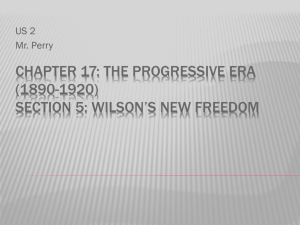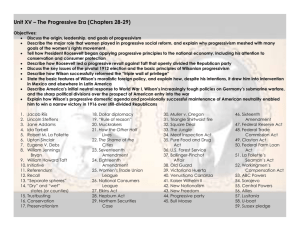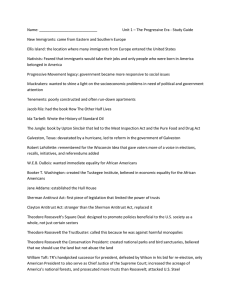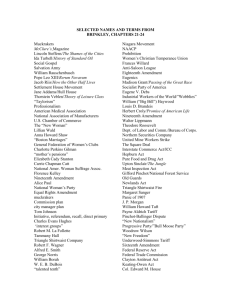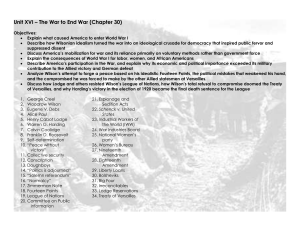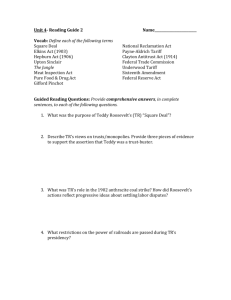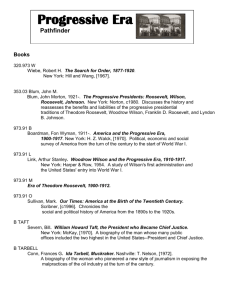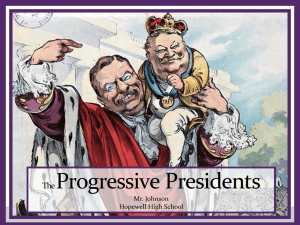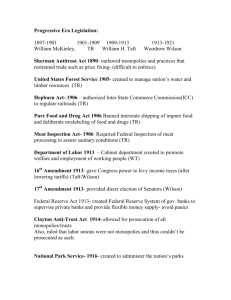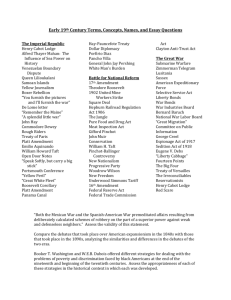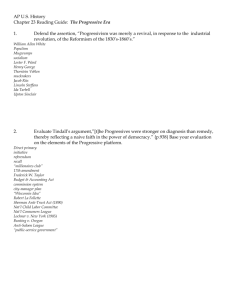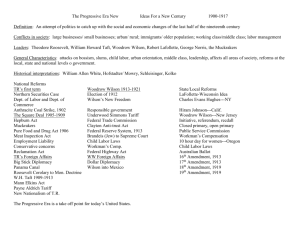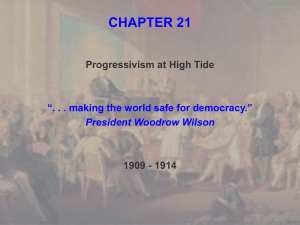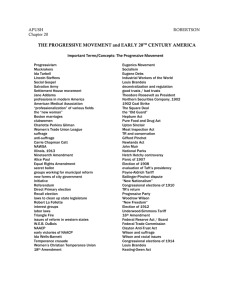APUSH Chapters 28
advertisement
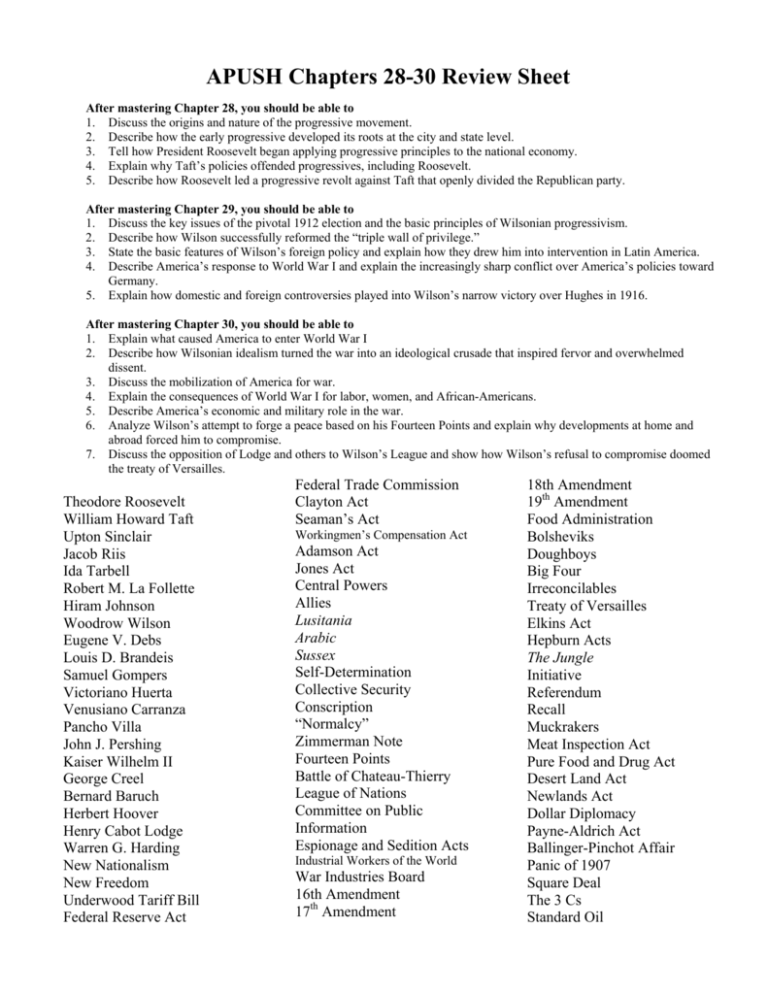
APUSH Chapters 28-30 Review Sheet After mastering Chapter 28, you should be able to 1. Discuss the origins and nature of the progressive movement. 2. Describe how the early progressive developed its roots at the city and state level. 3. Tell how President Roosevelt began applying progressive principles to the national economy. 4. Explain why Taft’s policies offended progressives, including Roosevelt. 5. Describe how Roosevelt led a progressive revolt against Taft that openly divided the Republican party. After mastering Chapter 29, you should be able to 1. Discuss the key issues of the pivotal 1912 election and the basic principles of Wilsonian progressivism. 2. Describe how Wilson successfully reformed the “triple wall of privilege.” 3. State the basic features of Wilson’s foreign policy and explain how they drew him into intervention in Latin America. 4. Describe America’s response to World War I and explain the increasingly sharp conflict over America’s policies toward Germany. 5. Explain how domestic and foreign controversies played into Wilson’s narrow victory over Hughes in 1916. After mastering Chapter 30, you should be able to 1. Explain what caused America to enter World War I 2. Describe how Wilsonian idealism turned the war into an ideological crusade that inspired fervor and overwhelmed dissent. 3. Discuss the mobilization of America for war. 4. Explain the consequences of World War I for labor, women, and African-Americans. 5. Describe America’s economic and military role in the war. 6. Analyze Wilson’s attempt to forge a peace based on his Fourteen Points and explain why developments at home and abroad forced him to compromise. 7. Discuss the opposition of Lodge and others to Wilson’s League and show how Wilson’s refusal to compromise doomed the treaty of Versailles. Theodore Roosevelt William Howard Taft Upton Sinclair Jacob Riis Ida Tarbell Robert M. La Follette Hiram Johnson Woodrow Wilson Eugene V. Debs Louis D. Brandeis Samuel Gompers Victoriano Huerta Venusiano Carranza Pancho Villa John J. Pershing Kaiser Wilhelm II George Creel Bernard Baruch Herbert Hoover Henry Cabot Lodge Warren G. Harding New Nationalism New Freedom Underwood Tariff Bill Federal Reserve Act Federal Trade Commission Clayton Act Seaman’s Act Workingmen’s Compensation Act Adamson Act Jones Act Central Powers Allies Lusitania Arabic Sussex Self-Determination Collective Security Conscription “Normalcy” Zimmerman Note Fourteen Points Battle of Chateau-Thierry League of Nations Committee on Public Information Espionage and Sedition Acts Industrial Workers of the World War Industries Board 16th Amendment 17th Amendment 18th Amendment 19th Amendment Food Administration Bolsheviks Doughboys Big Four Irreconcilables Treaty of Versailles Elkins Act Hepburn Acts The Jungle Initiative Referendum Recall Muckrakers Meat Inspection Act Pure Food and Drug Act Desert Land Act Newlands Act Dollar Diplomacy Payne-Aldrich Act Ballinger-Pinchot Affair Panic of 1907 Square Deal The 3 Cs Standard Oil
